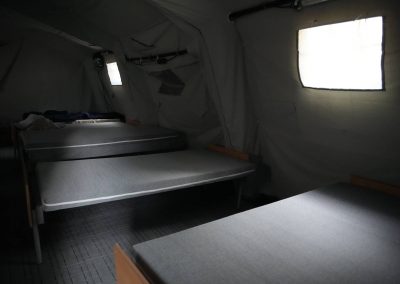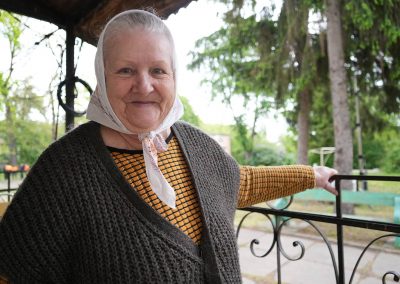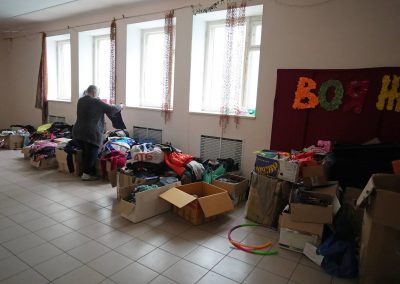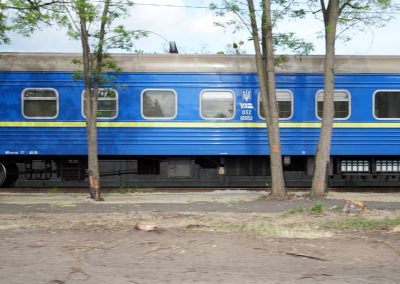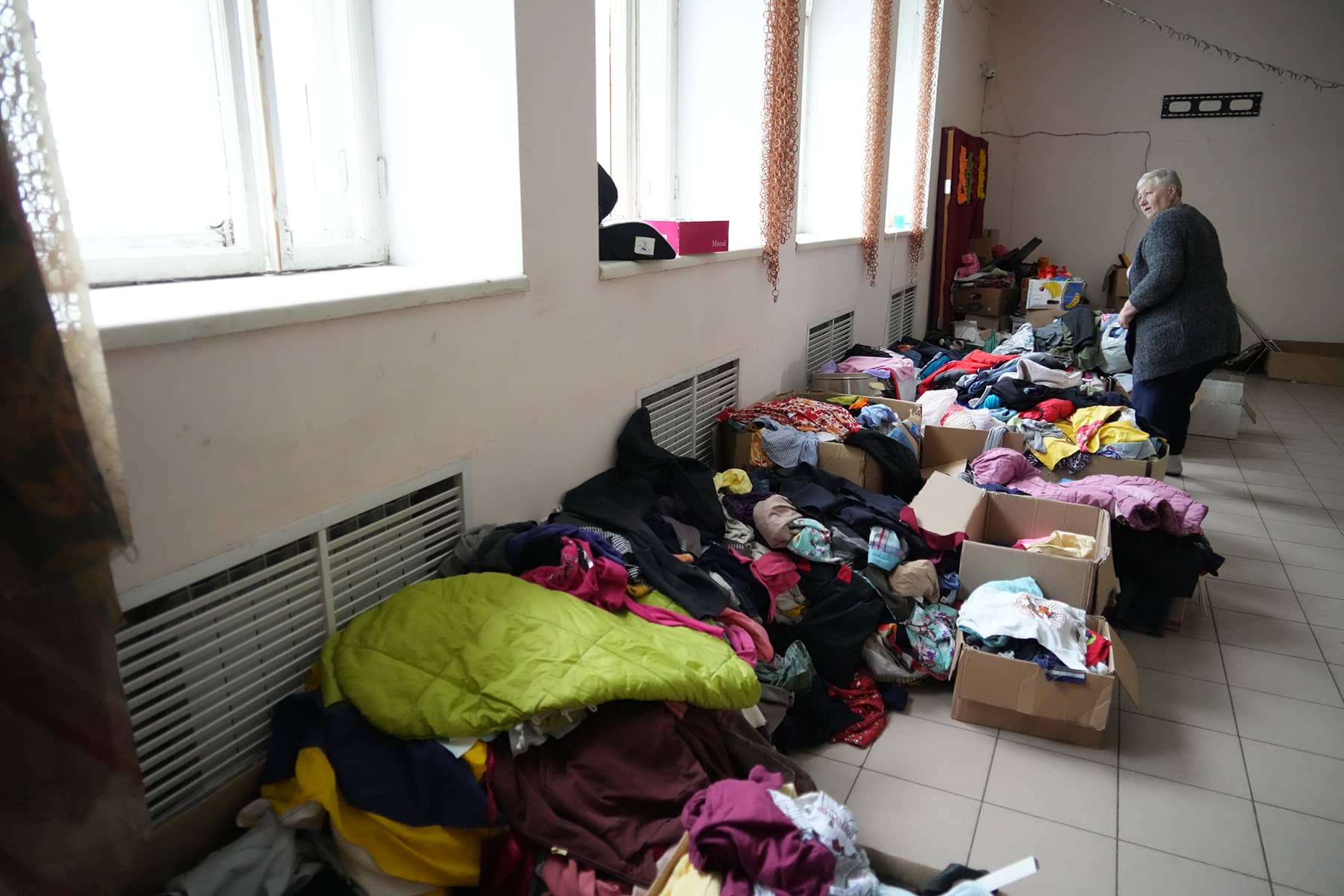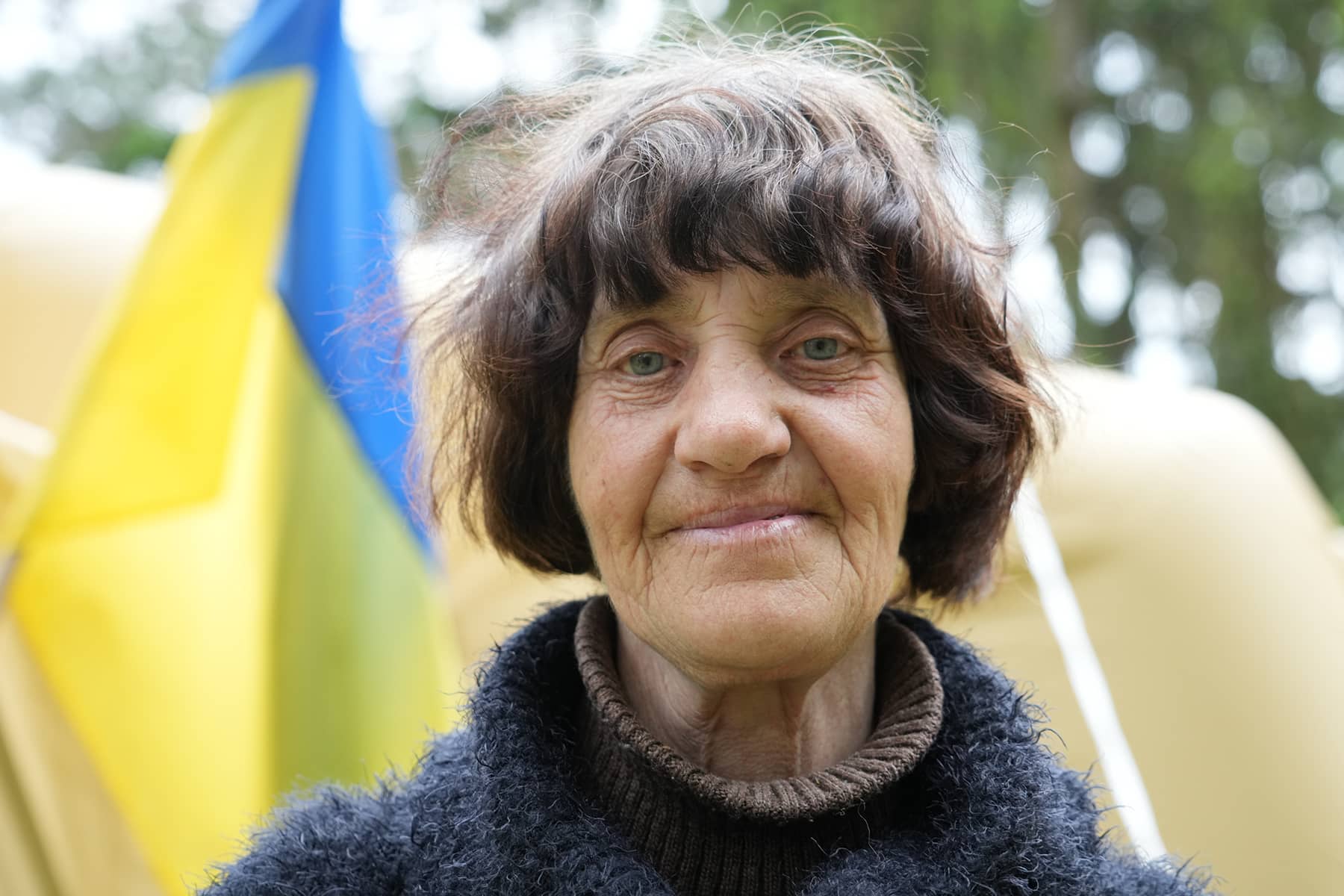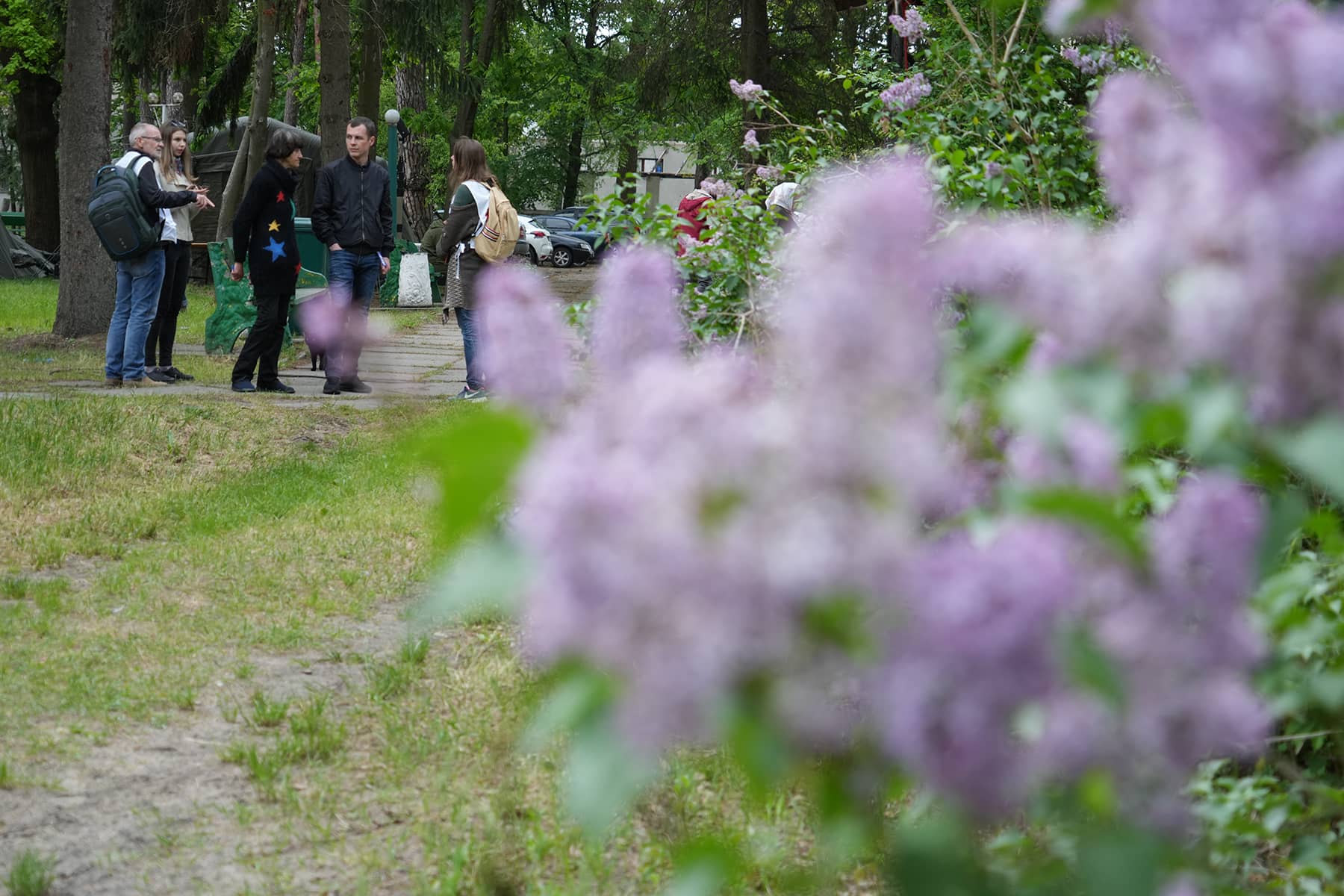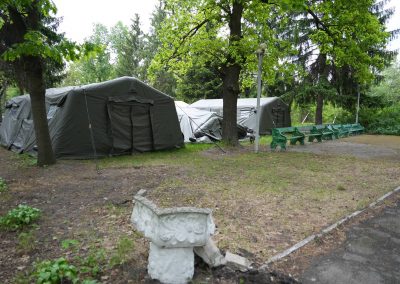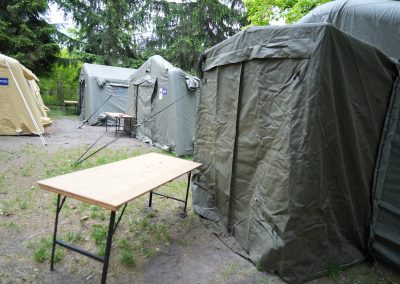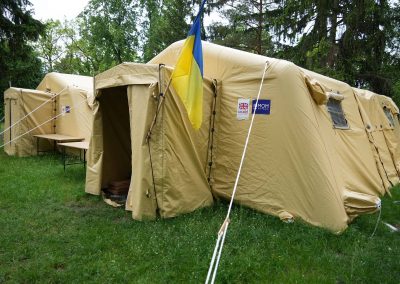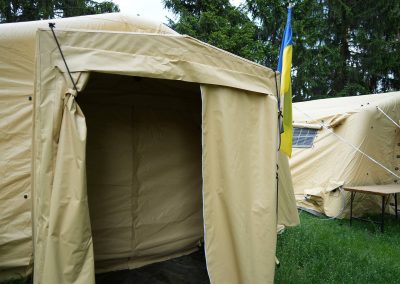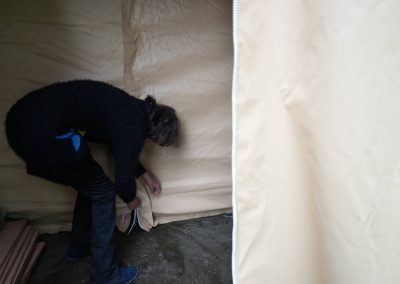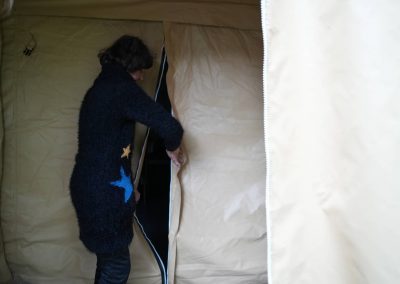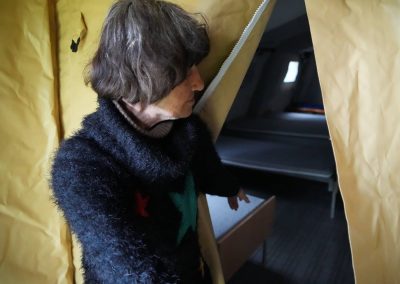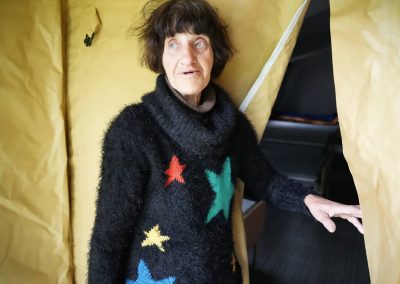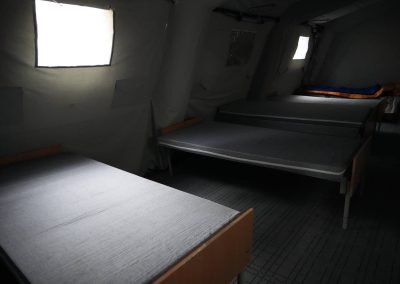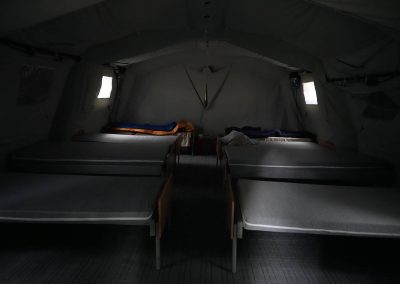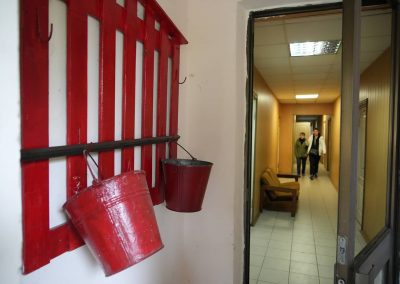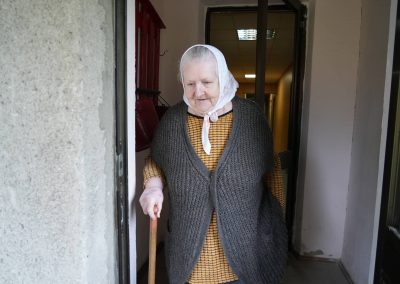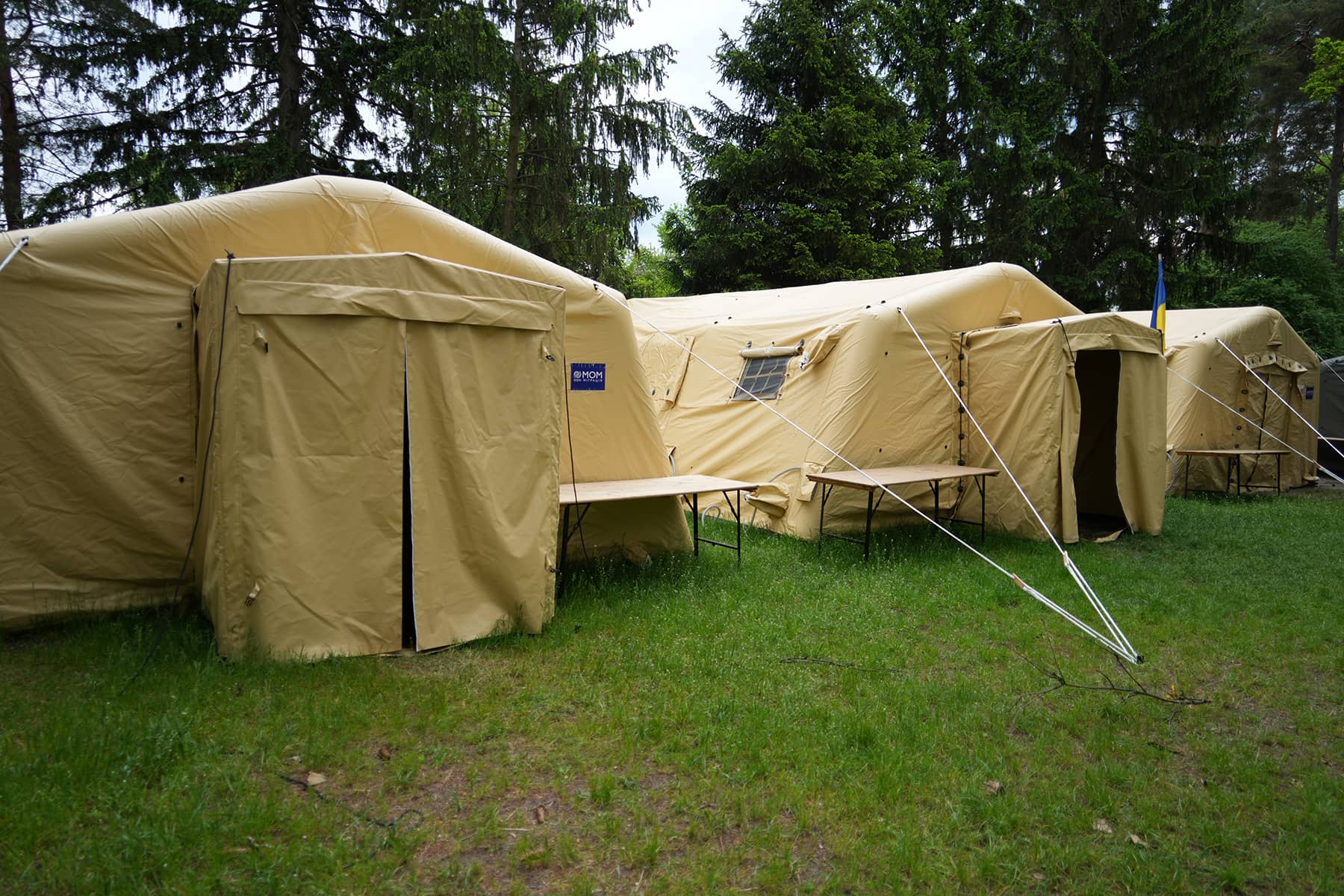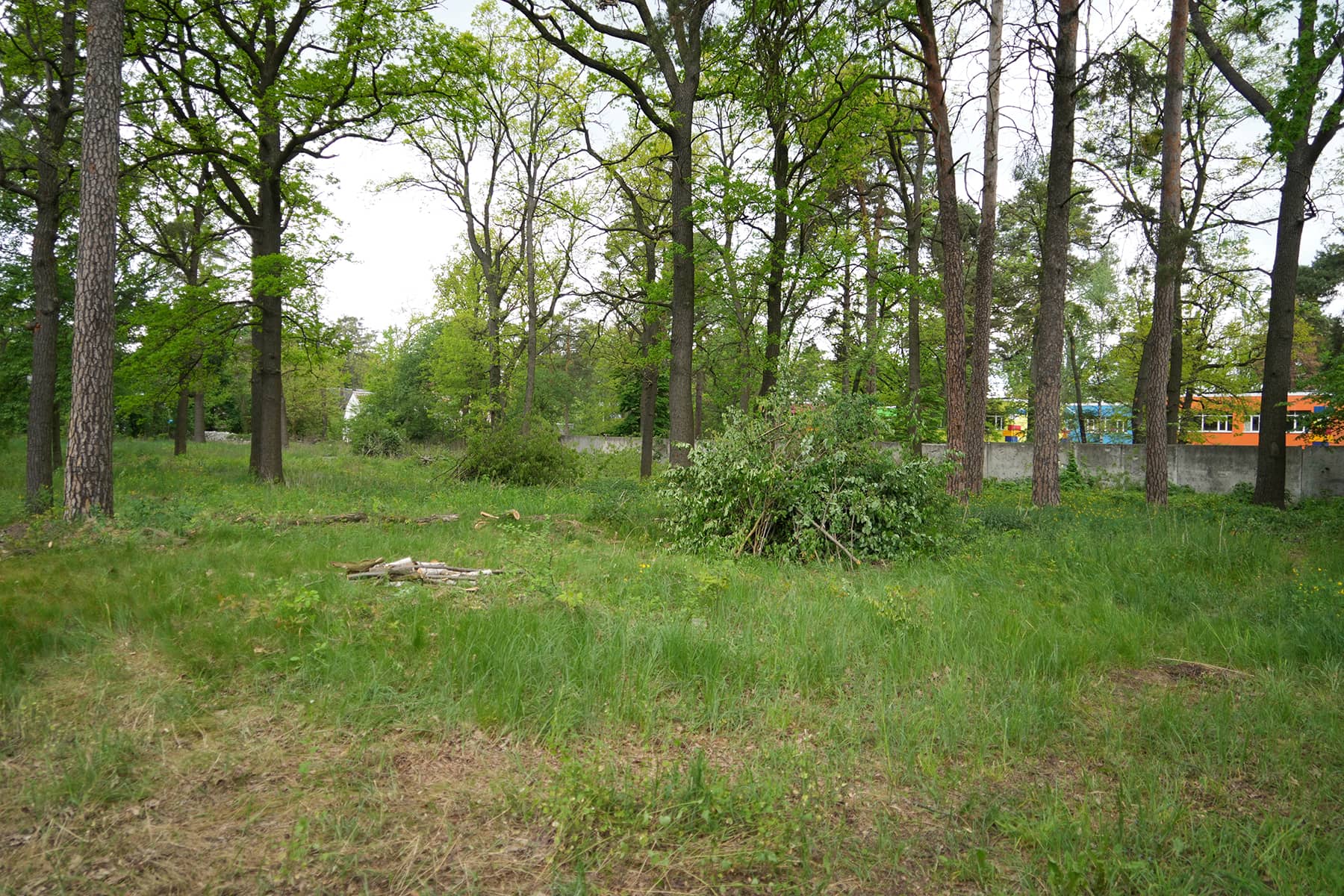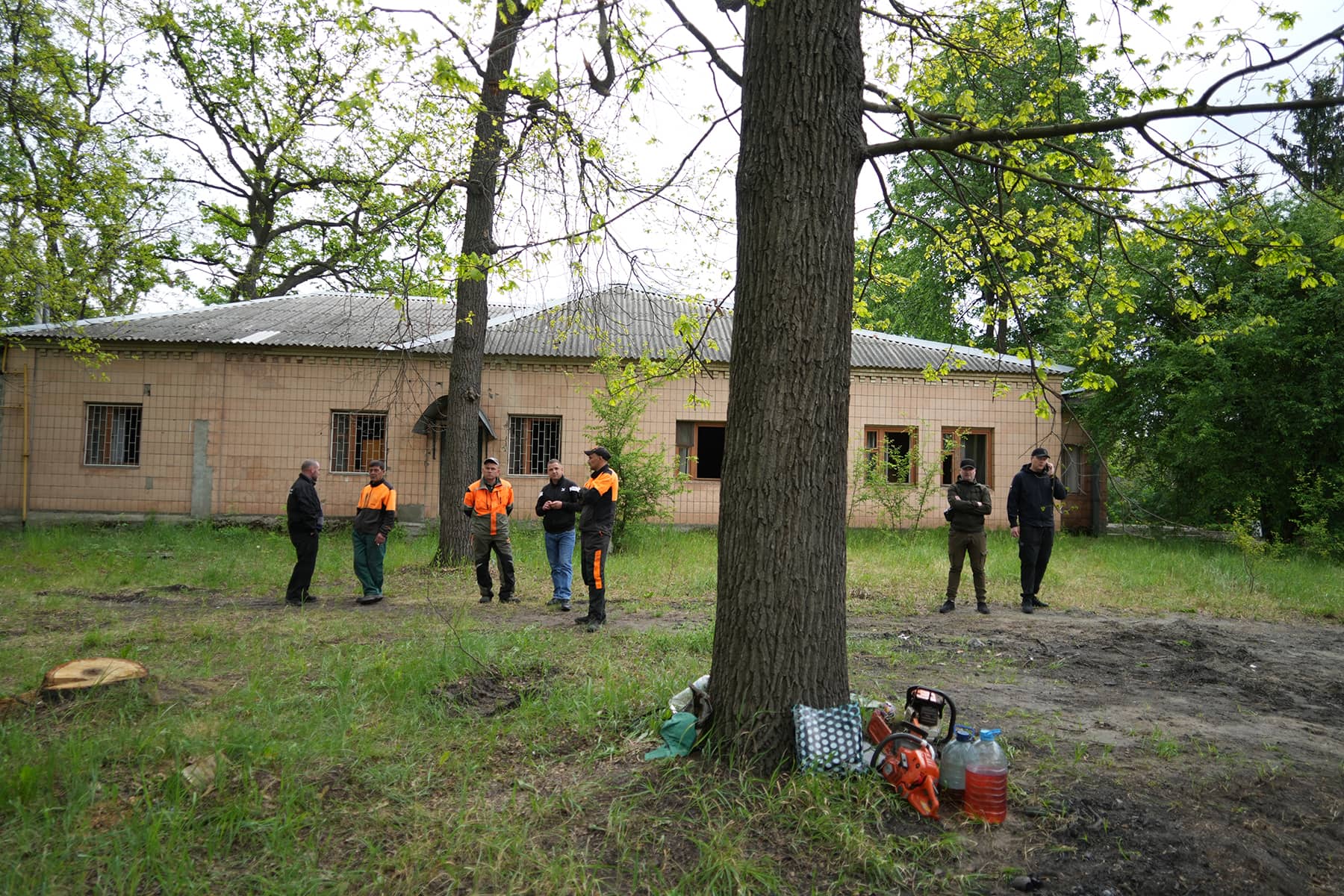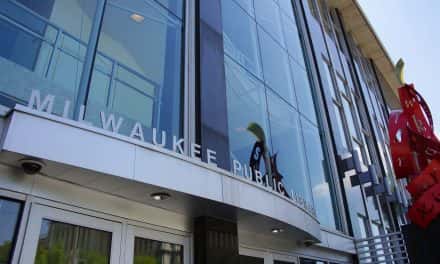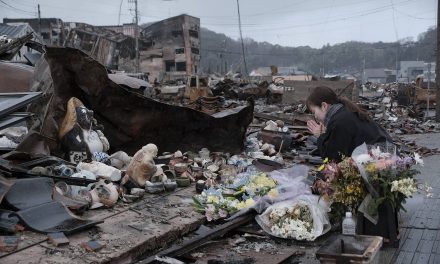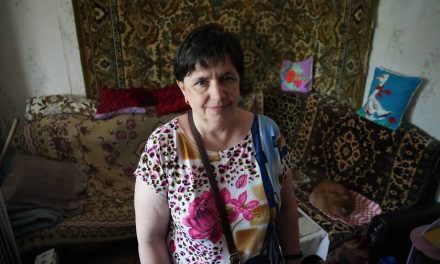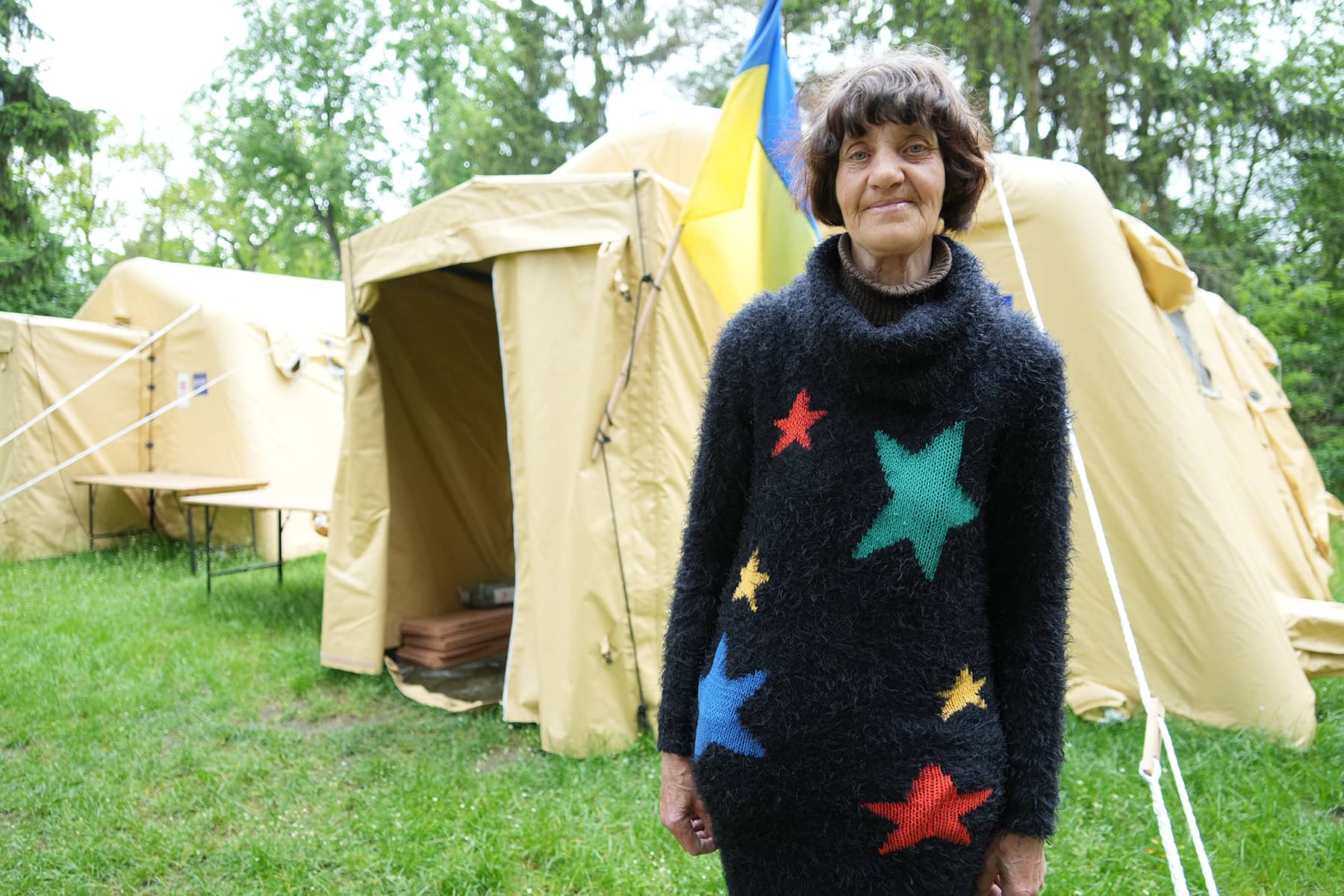
Since Russian forces were defeated and pushed out of Irpin in late March, thanks to the successful Ukrainian counteroffensive, the city has been working at full speed to repair the extensive damage to its critical infrastructure.
Patches have been applied to streets cratered by mortar fire. Burned tanks have been cleared away to allow commuter traffic to resume. Water lines and sewage services have been restored. Even grocery stores are reopened and stocked with a variety of food.
But thousands of residents from Irpin and surrounding areas remain displaced, and in urgent need of care. Their homes or apartments were utterly destroyed, and rebuilding them while Ukraine remains in a state of war has been a challenge for the local government.
Once the threat to Irpin faded as Russian forces left the city, residents began desperately returning even before the area was declared safe. Many found their homes flattened. It created a crisis for the city government, to manage the refugees before a plan was in place for Irpin’s recovery.
In the early weeks after Irpin was liberated, bodies were still being recovered from the rubble. The removal process was hindered and slowed due to the cruelty of the Russian military, who set explosive boobytraps on many corpses and in homes. The city was left with no water, electricity, internet access, in addition to the hidden military threats.
With a population of 60,000 before the war, Irpin spent weeks cataloging the civil and economic damage. The survey found that 70% of the structures in the city were damaged, with 30% beyond repair. The cost of rebuilding quickly reached an estimated $1 billion. In addition, the loss of its tax base meant that city leaders depended on humanitarian aid and charity to make infrastructure repairs. But often the work was done by necessity, without funding.
While Mayor Oleksandr Markushin and regional leaders prepared permanent housing for people, they also provided temporary shelters for the homeless – especially families with children. Initially, Ukrainian Railways provided carriages that were able to accommodate up to 200 residents. The rolling stock included beds, showers, and a dining car.
The British government also donated tent shelters, which have proved to be essential for many returning refugees. They added another 70 beds to the 120 rooms that had been setup in a sanatorium. Mayor Markushin announced on social media in early May that the city had provided about 2,000 beds for displaced Irpin’s residents.
State funding has already been set aside for the construction of new housing. By the end of 2022, Irpin hopes to build a medium-sized residential complex to address the needs of displaced residents. The effort follows plans to establish other long-term housing in the area.
President Volodymyr Zelenskyy previously estimated that the unprovoked Russian invasion would have a $600 billion impact on Ukraine, but recent estimates as the war continues has pushed that total over $1 trillion.
© PHOTO NOTE: All the original editorial images published here have been posted to the Facebook page of Milwaukee Independent. That collection of photos contains the MI copyright and watermark for attribution, and may be used for private social media sharing. Do not download and share images directly from this page. mkeind.com/facebook
Series: Reports from Ukraine
- Reports from Ukraine: Traveling from Milwaukee to a country at war just to take a vacation from America
- Images from Ukraine: Latino artist travels to Irpin to paint mural inspired by "Echoes of Guernica"
- Images from Ukraine: Irpin residents welcome reissue of Russian Warship Stamp as latest sign of victory
- Stories from Ukraine: Wandering in the ruins of a shattered life after surviving Russia's invasion
- Images from Ukraine: Similar to the Alamo, martyred cities bought precious time to save a nation
- Stories from Ukraine: Tent camp offers shelter for displaced residents until Irpin can rebuild lost homes
- Images from Ukraine: Graveyards of Russian war machines show the scale of Putin's failure to seize Kyiv
- Images from Ukraine: Following the invasion convoy's 40-mile route and exploring an abandoned base
- Stories from Ukraine: Illegal weapons and proof of Russian War Crimes easily seen along streets of Irpin
- Images from Ukraine: How Irpin’s cemetery processed the staggering massacre of its local citizens
- Stories from Ukraine: Healing remains slow as Borodyanka residents recover from occupation
- Images from Ukraine: The deep scars of war remain visibly etched across the landscape of Borodyanka
- Interview with Oleksandr Markushin: Mayor of Irpin and the hero of a Hero City
- A Meeting of Sister Cities: Former and current Mayors of Irpin ask Milwaukee's business community for help
- Stories from Ukraine: Having a shared purpose helped Irpin's leaders protect the city and stop the invaders
- Stories from Ukraine: How Milwaukee helped a bakery feed hungry survivors in Bucha with fresh bread
- Stories from Ukraine: Bucha resident recalls how Russians turned neighborhood into a street of death
- Stories from Ukraine: How a mass grave of executions overshadowed accountability from Bucha’s leadership
- Images from Ukraine: Putin’s attack on Babyn Yar is a painful reminder of the broken vow of “Never Again”
- Images from Ukraine: An unexpected encounter with Jewish history and the bloody legacy of persecution
- Images from Ukraine: Listening to timeless voices of ethnic heritage etched in stone at Lychakiv Cemetery
- Images from Ukraine: The experience of attending a military funeral in Kyiv while children died in Uvalde
- Images from Ukraine: Stepping out of the fog of war to see the beauty of faith in ancient places of worship
- Images from Ukraine: The cities of Kyiv and Lviv were divided by history but remain united in identity
- Stories from Ukraine: Anya Nakonechna shares why the Lviv Opera is a symbol of her nation’s culture
- Images from Ukraine: A folk village where visitors can experience the life of past generations
- Images from Ukraine: Signs of renewal sprout from under Irpin’s rubble as city looks to the future
Lее Mаtz
Lее Mаtz
Milwaukee Independent editorial team for this special series: (UKRAINE) Lee Matz, photojournalist; Oleh Pinta, translator / reporter; Yaroslav Zdyrko, security / videographer; (MILWAUKEE) Halyna Salapata, logistics / translations.
Milwaukee Independent has reported on the situation in Ukraine since it was invaded on February 24. Coverage originally began with reactions and rallies from the local Ukrainian American community, and relationships with Milwaukee’s sister city of Irpin. Through partnerships and good journalism, sources were developed that enabled Milwaukee Independent to publish developments about the unprovoked war in realtime. In late May, a team from Milwaukee Independent spent nearly two weeks on the ground in Ukraine. The award-winning daily news magazine was the first and, at the time, only media organization to send staff into the country since the war began.
Reports from Ukraine: An extensive news series by Milwaukee Independent from a country at war

